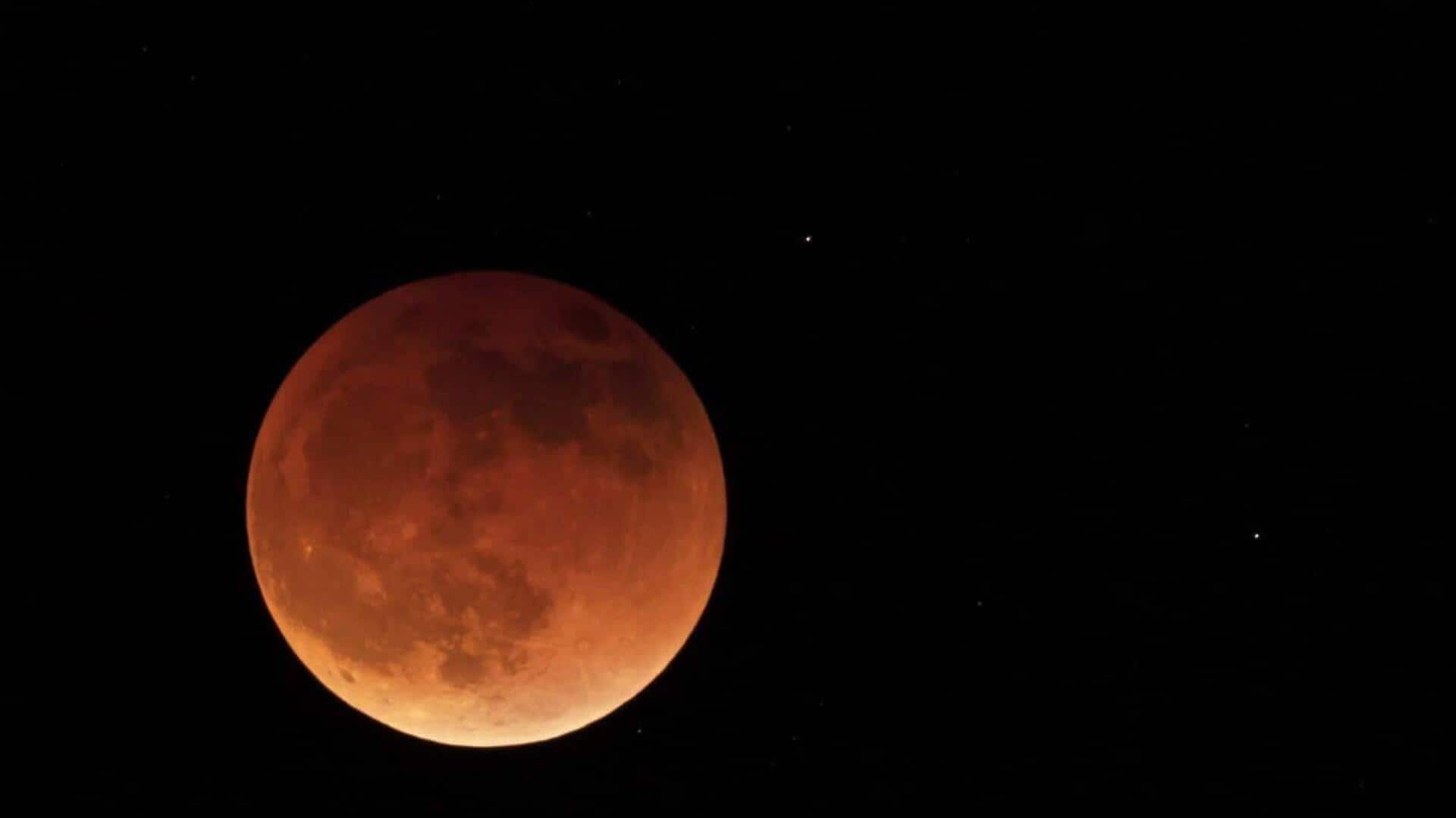
Lunar eclipse graces the sky tonight: When, how to watch
What's the story
We are in for a spectacular astronomical treat today as a partial lunar eclipse will take place. It will be visible in India. During lunar eclipses, the Earth aligns between the Sun and the Moon, with the planet casting a shadow on the Moon's surface. Notably, this astronomical event only occurs when the Moon is at its fullest. Today's full moon, called the Hunter's Moon, will lie in the constellation 'Aries the Ram.'
Details
What happens during a partial lunar eclipse?
During a partial lunar eclipse, only part of the Moon comes under the Earth's shadow, which appears like it is taking a "bite" out of the Moon's surface. In contrast, in a total lunar eclipse, the entire Moon comes under the darkest part of Earth's shadow, or the umbra. This will be the second lunar eclipse we are seeing this year. In May, a penumbral lunar eclipse took place, which lasted about four hours and 18 minutes.
Timings
When to observe the eclipse?
DD News reports that the partial lunar eclipse will commence at 11:31pm IST today and will conclude at 3:36am IST on October 29. During this period, roughly 6% of the Moon's surface will be obscured by Earth's shadow. The event will also be observed from Europe, Australia, Africa, eastern South America, northeastern North America, the Atlantic Ocean, the Indian Ocean, and the South Pacific Ocean.
Insights
How to watch the lunar eclipse?
Observing lunar eclipses is a simple and enjoyable skywatching activity. No specialized equipment is required. However, using binoculars or a small telescope can enhance the experience by revealing details on the lunar surface. If you're unable to witness the event in person or if the weather is unfavorable, Timeanddate will livestream the event on their YouTube channel. You can also check if the event will be visible from your place using Timeanddate's interactive map.
Facts
The next total lunar eclipse will occur in March 2025
October has been a month of captivating celestial spectacles. Today's event follows the extraordinary "ring of fire" solar eclipse that happened on October 14. Also, the Orionid meteor shower peaked last weekend, on October 21. The next total lunar eclipse, also called the blood moon lunar eclipse, is not expected until March 13/14, 2025, per Space.com. In the interim, partial and penumbral lunar eclipses will continue to captivate skywatchers.